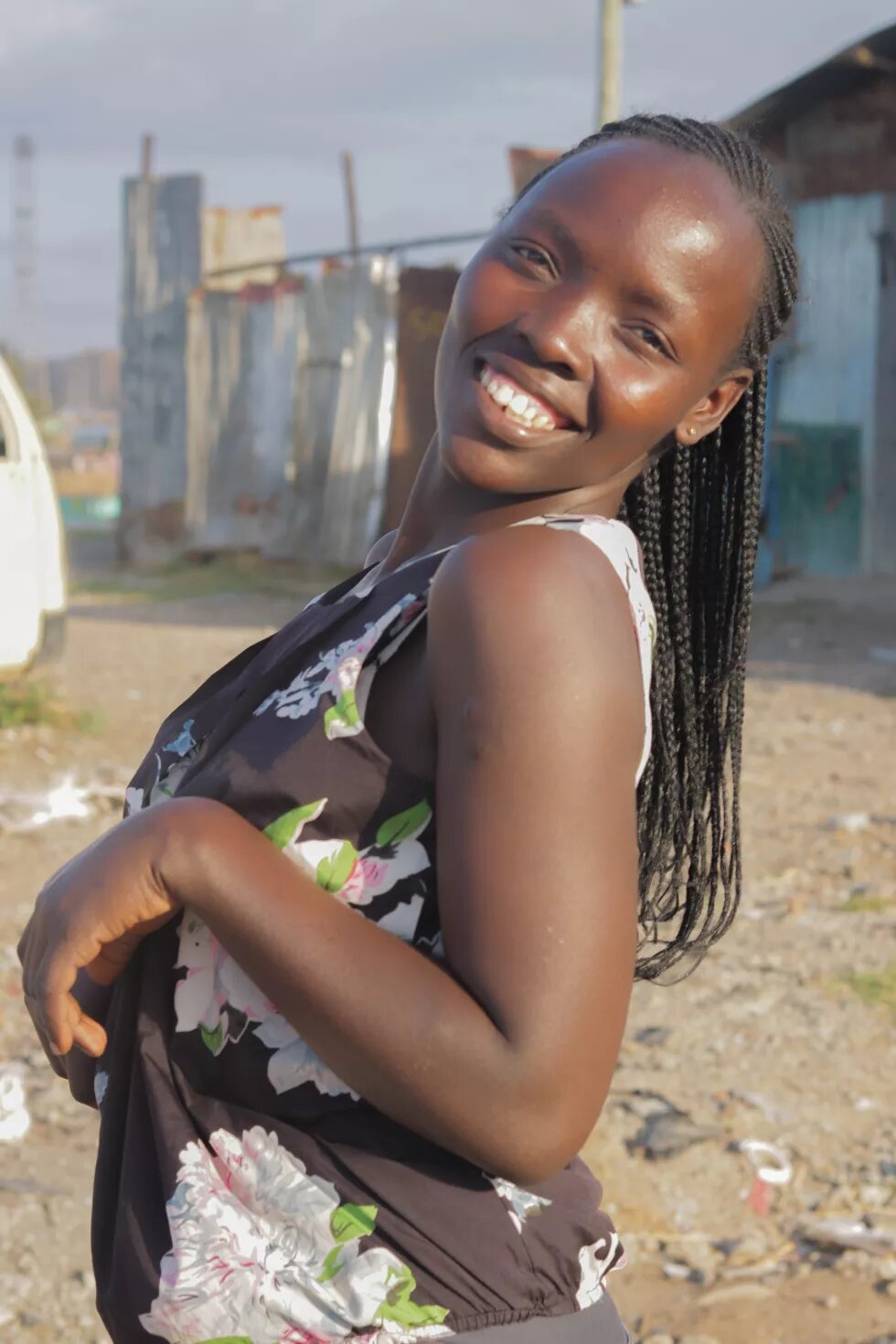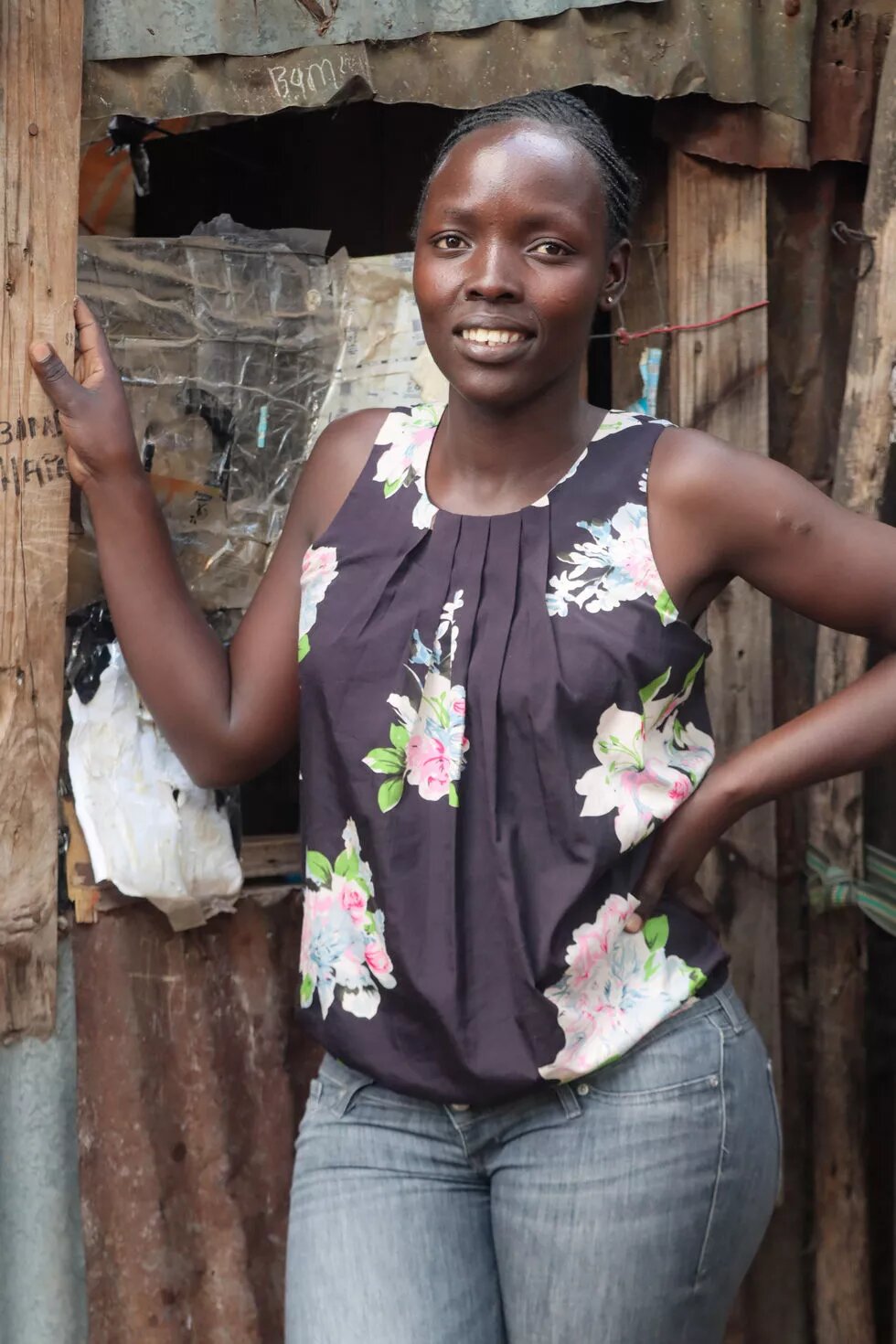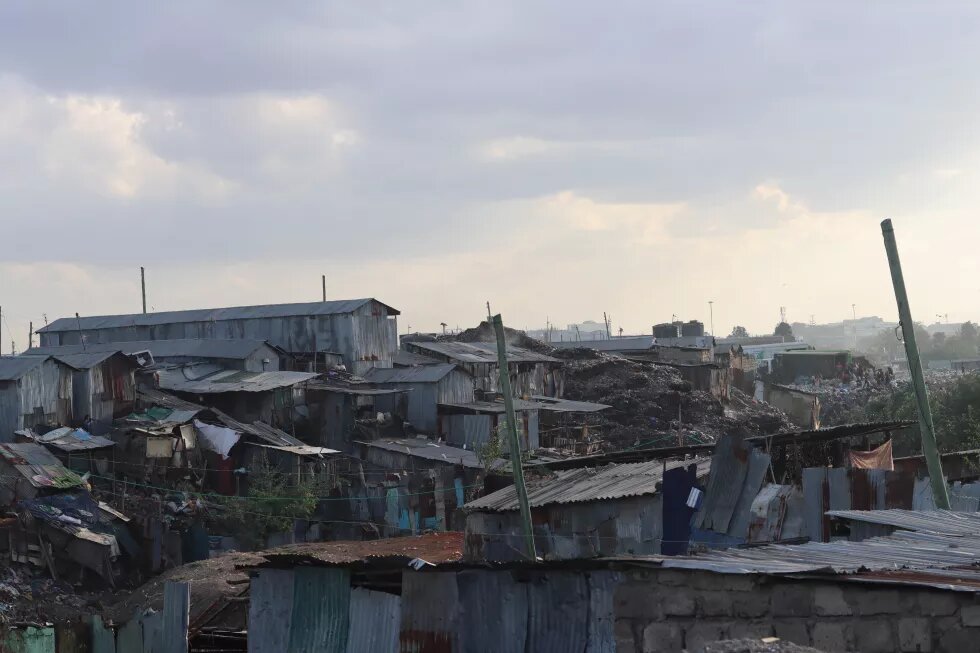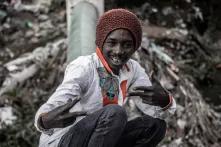

I moved to a rural place with my sister since the house in Sinai was not large enough for the whole family. My mother sent us to the countryside for the three years. We then had to come back to Sinai Nairobi because my grandmother had other grandchildren to take care of.
I moved from Sinai to Kibera to look for job opportunities. My home in Kibera is a single room made of iron sheets. I live there since it’s the only place I can afford, I do not have a stable job at the moment. I have lived there since childhood. I have friends there. The living conditions are poor. The houses mostly have patches and holes in walls, and holes in the roofs. There is poor drainage, air pollution resulting from the dumpsite, and bad waste management.
Moving to a new area and adapting to a new environment and people is difficult. For instance in Kibera there is water; Sinai suffers from a shortage of water. Rent in Kibera was higher.
A demolition happened in September last year by the government. There was insufficient notice. The chief made an oral announcement just two hours in advance. Households were displaced and had to camp outside. One life was lost as a result. Those who went to work came back to find their homes reduced to rubble. Women in my age group opted to go into marriage to get a roof over their head. Others went into sex work. Young men have lost their sources of livelihood and income.
I lost property including furniture, which got damaged. I had to sell some at a lower price and give other pieces away.
There are no jobs. I sometimes have to do chores on credit so I end up covering basic needs on credit. That makes food expensive. It has been hard to get food from the rural areas because farm inputs have also become expensive. I would want to farm. I need space and financial support to get farm tools and inputs.
This testimony is part of the Dossier Urban Displacement. Forced Evictions: Stories from the Frontline in African Cities



